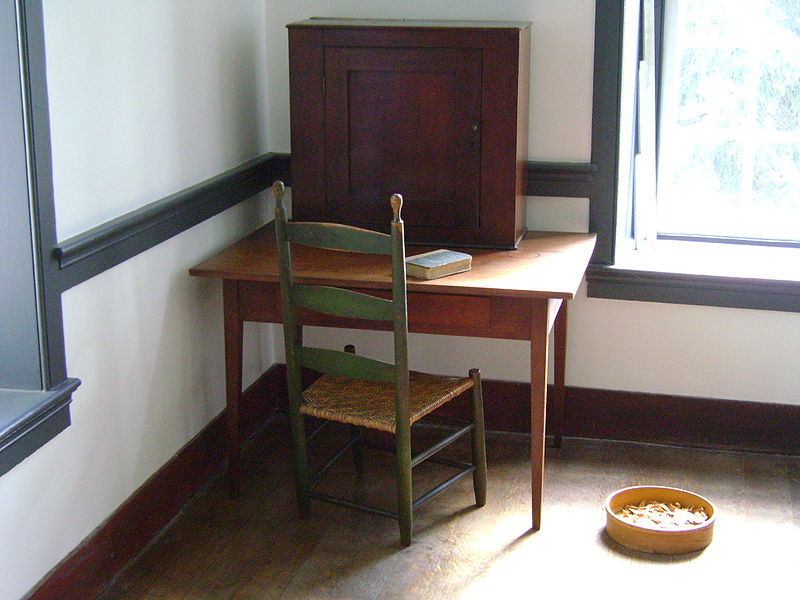MIMBRES, NM — I first fell in love with this Shaker song at an ill-fated wedding in Glenwood, NM, in a small church with an old piano many years ago. All I knew about the Shaker religion was their furniture, not their beliefs. Furniture built to last, unadorned, simple but beautiful. This song, written by a Shaker elder named Joseph Bracket in 1848, has been performed by many artists over the years, including Aaron Copland (Appalachian Spring, 1944), Jody Foster (Kung Fu), Sydney Carter (Lord of the Dance, 1963), Weezer, R.E.M., Judy Collins, Jewell, Toy Dolls, and Yo-Yo Ma at President Obama’s first inauguration in 2009, even though it was too cold to really perform it.

Shaker furniture. (©Doug Coldwell)
Unlike other religions that expound a philosophy of “be fruitful and multiply,” Shakers believed in celibacy, which probably explains why there aren’t more of them. But they did like to sing and dance, live communally, eschew worldly goods, and work hard. Live simply, be free, and turn round right. Simplicity and freedom was not just “a” gift, but “the” gifts.
Simplicity and freedom, two connected thoughts. Things, stuff, possessions clutter our minds. When we have them we have to worry about them. What if they don’t work? What if someone steals them? Where are they when they aren’t where we thought they were? What would we do without them? Would freedom ensue? Other religions also ask us to forsake worldly things and focus on spirituality.
Here comes Chicago (the band) also connecting these same two precepts, and accentuating the themes of love and inspiration (or delight).
But the question remains unanswered. Does simplicity lead to freedom? Is love simple, or inspirational? Do we need only one thing? The world is complicated. A simpleton used to be a person who was not capable of understanding complexity, or in today’s words, a mentally challenged individual. Have we been coaxed into believing there is only one way to observe reality? Is there only one truth, and does it come from science, religion, experience, dreams? Or do we need to school ourselves in complexity? Unearth layers of truths and untruths, and figure out where they came from? Some people feel mighty certain of their beliefs; others remain skeptical.
And freedom, what is that? Freedom to or freedom from? Is it as Janis Joplin suggested, “just another word for nothing left to lose?” A number of politicians espouse freedom from government strictures (mostly involving regulations pertaining to science and environmental issues) while promoting strictures involving voting rights and women’s bodies.
Yes, we have too much stuff. Yes, we need to clear our minds, stop the nonsense that plays like a radio station inside our heads. Meditation and yoga would be helpful. Returning to a more centered and sustainable life style, yes. Reduce our carbon footprints. Grow vegetables. OK. Then?
While I would like to believe in simplicity, in easy answers, I must come down on the side of complexity and ambiguity. And freedom, what might that be other than Janis Joplin’s decree. Might it be Richie Havens at Woodstock, sometimes feeling like a motherless child?
In the end, we are tasked with hard work. Thinking about simplicity and complexity, thinking about freedom and slavery, and everything in between. A lot is in between. Music is just for starters. Poetry also:
“O wad some Power the giftie gie us, to see oursels as ithers see us!”
—Robert Burns
And thanks to TS for an almost fifty year-old friendship and a stimulating conversation about all this.


I have a new book just published about this wonderful Shaker song with bonus music examples (including my arrangement of Tis the gift to be simple) and video files on a multimedia DVD. Here’s the link:
http://www.americanmusicpreservation.com/SimpleGiftsmultimedia.htm